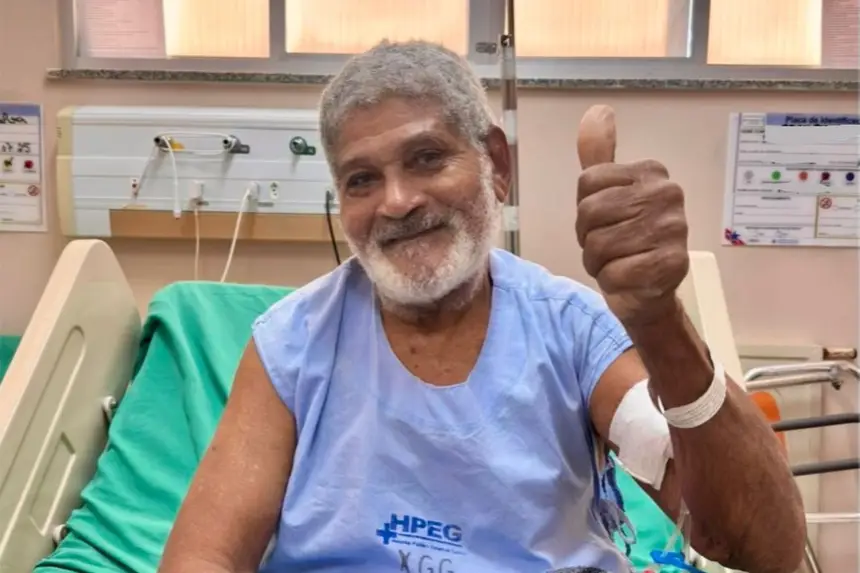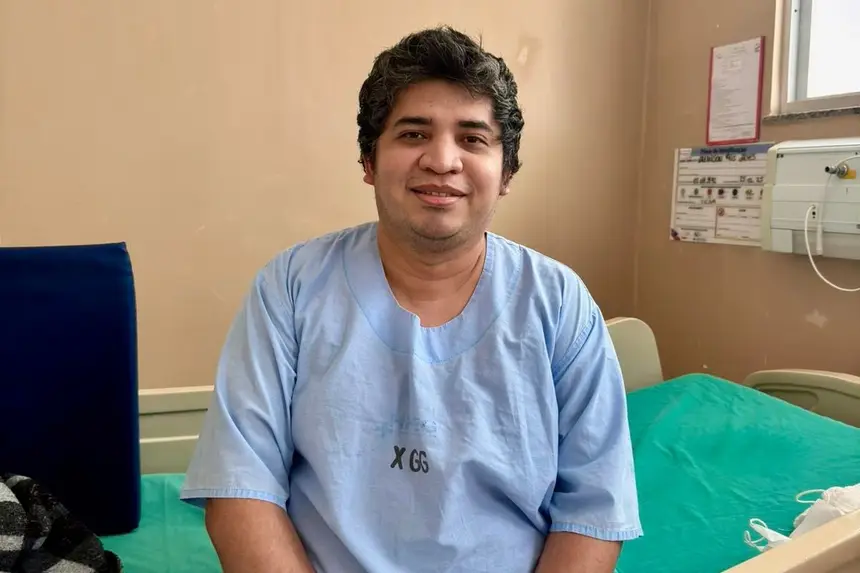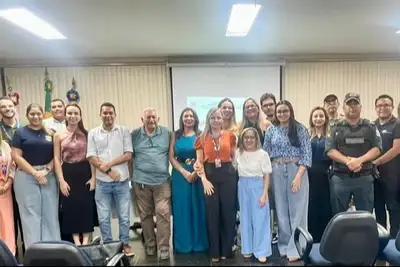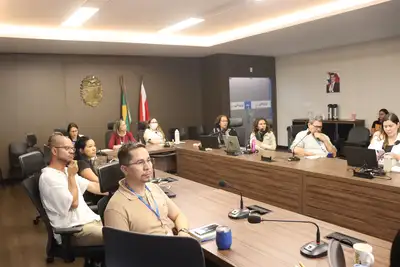Galileu Hospital Nursing Contributes to Safer Recovery in the Postoperative Period
The team works on preventing complications and guiding orthopedic patients in the state public unit, a reference in orthopedic trauma

Silent but potentially dangerous, complications in the postoperative period can delay recovery and even put lives at risk. At the Galileu State Public Hospital (HPEG), a reference in orthopedic trauma in Greater Belém, the nursing team works daily to reduce risks, combining clinical vigilance, precise technique, and continuous education for patients and families.
Surgical site infections, deep vein thrombosis, pressure injuries, dehydration, electrolyte disturbances, and even issues related to pain and healing can be prevented with rigorous monitoring.
"Nursing is a key piece in safe recovery. Our job is to identify any signs of complications early and guide patients through each step of the care process," explains the nursing coordinator of HPEG, Yasmim Rendeiro.
In cases of orthopedic surgeries, daily guidance makes all the difference. "The team reinforces simple and essential care, such as not putting weight on the operated limb before medical clearance, using walkers or crutches correctly, staying well-hydrated, observing dressings, and recognizing warning signs for infection or thrombosis. We also encourage the practice of exercises prescribed by physiotherapy and proper adherence to painkillers," details Yasmim.

During hospitalization, nursing monitors vital signs, clinical evolution, and healing. But the work goes beyond that: "We involve family members and caregivers, use educational materials, verbal explanations, and practical demonstrations. Education is as important as technique — it ensures that the patient understands the care and feels secure," states the coordinator.
Care
José Costa Silva, 77 years old, a farmer and resident of Dom Elizeu, in the Rio Capim region, is recovering in the Government of Pará unit. He underwent surgery to correct a fracture in his right knee. With 39 days of hospitalization, he has received continuous care.
"I am satisfied with the care. The nursing team treats me with affection, does all the dressings carefully, and constantly checks on how I am doing. This makes me calm and happy because I feel that they really care about me," said José.
Alenilson Reis Alves, 34 years old, a general services worker and resident of Icoaraci, is recovering after treatment for osteomyelitis in his left femur due to an accident. He has received intensive care from the nursing team, which is essential for his recovery.
"The nursing professionals at Galileu are attentive, always listen to me, and explain each step of the treatment. I have been hospitalized for 38 days, and the care is excellent in all aspects, from medication administration to guidance on necessary care. This has been fundamental for my progress," reported Alenilson.
Nurse Rose Daniele emphasizes that the role of the nursing team is essential both pre- and postoperatively. According to her, a series of precautions must be taken before surgery to ensure safety and avoid cancellations, which can lead to patient dissatisfaction and prolong hospitalization. "Among the most important measures are the suspension of anticoagulants, checking documents and exams, as well as requesting blood components and reserving ICU beds when necessary," she explains.
Rose emphasizes that the nursing perspective goes beyond the physical. "We also need to be attentive to the emotional state of the patient, as stress and anxiety before the procedure can impact their recovery," she states. In the postoperative period, the team works on constant monitoring, pain control, prevention of bleeding, and comprehensive care for the surgical wound. "Our focus is for the patient to recover without complications and with physical and mental well-being," adds Rose.
Protocols
Among HPEG's strategies is the Hand Hygiene Protocol, a pillar of infection prevention. "It defines key moments and appropriate techniques to avoid contamination. We associate this with other measures aimed at preventing infections and thrombosis," emphasizes Yasmim.
Numbers
Only in 2025, so far, the nursing team at HPEG has already monitored 1,425 surgical patients. In June, there were 222 postoperative care sessions, a volume that reflects the intensity of the care work.
Safe Discharge and Continuity of Care
Care does not end upon leaving the hospital. "Since admission, we start preparing for discharge. We provide oral and written guidance on hygiene, movement, nutrition, and warning signs. This way, we ensure that the patient continues to take care of themselves at home and avoids complications," highlights Yasmim.
Composed of 184 nurses and nursing technicians, the nursing team at HPEG represents about 60% of the institution's staff, being considered the backbone of hospital care.
The executive director of the unit, Cledes Silva, also reinforces the importance of this care. "The work of the nursing team is strategic for the excellence of care we seek at HPEG. When we invest in training and safe protocols, we reduce complications, decrease hospitalization time, and deliver more humane care. The patient perceives that there is a complete team taking care of them, and this generates trust and better outcomes."
About HPEG
The Galileu State Public Hospital is a reference unit in orthopedic trauma, managed by the Institute of Social and Environmental Health of the Amazon (ISSAA), in partnership with the State Department of Public Health (Sespa).
Text by Roberta Paraense









